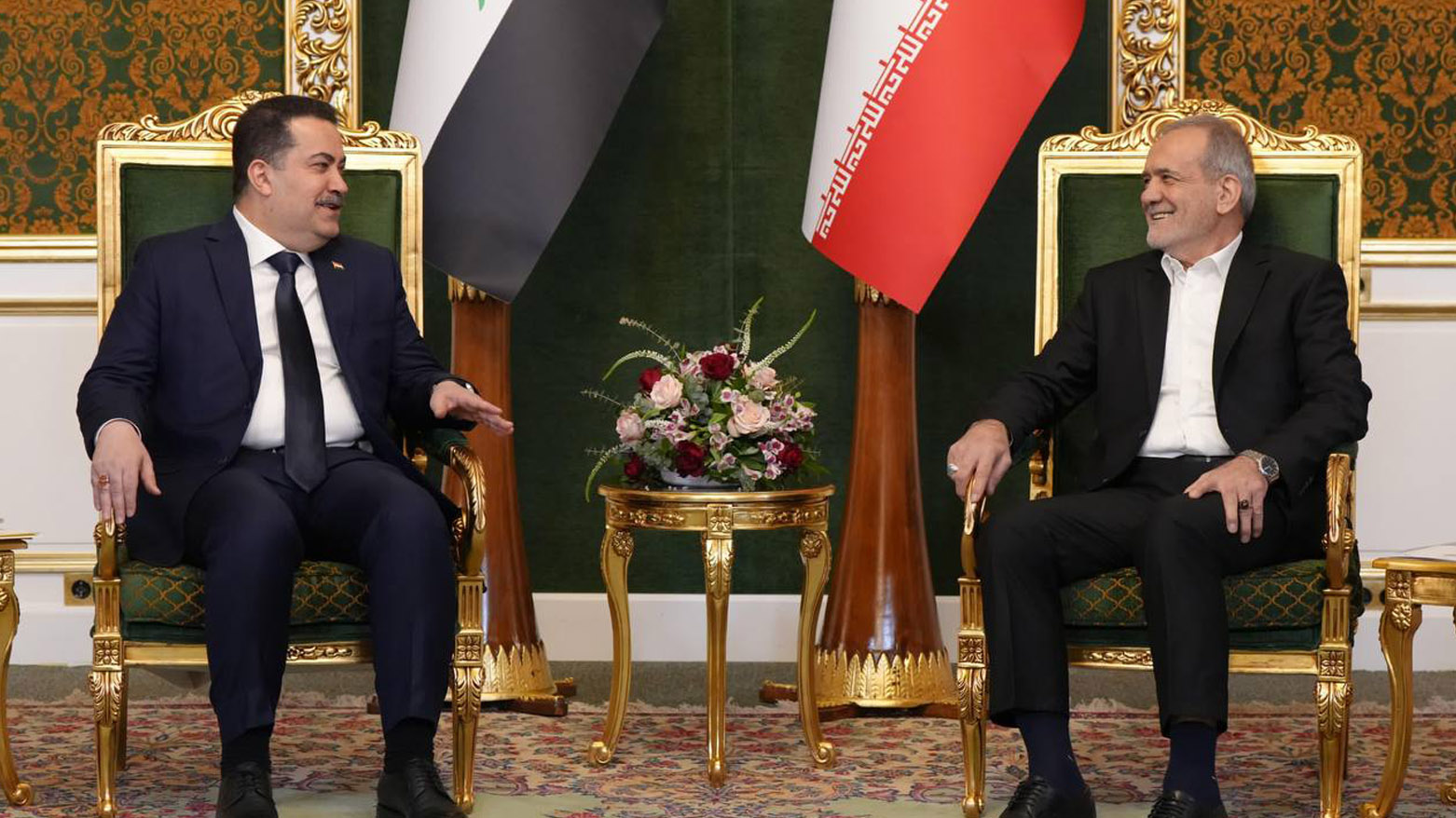Iraqi PM Balances U.S. Pressure and Regional Alliances in High-Stakes Tehran Visit
This visit comes as the United States has intensified its demands on Iraq to disband militias loyal to Iran and bring all paramilitary forces under the authority of the Iraqi army

Jan 8, 2025
ERBIL (Kurdistan24) – Iraqi Prime Minister Mohammed Shia al-Sudani and Iranian President Masoud Pezeshkian on Wednesday held a joint press conference at the Saad-Abad Palace in Tehran, highlighting mutual concerns over regional stability and shared strategies to address pressing security and political issues.
This visit comes as the United States has intensified its demands on Iraq to disband militias loyal to Iran and bring all paramilitary forces under the authority of the Iraqi army. These demands are part of Washington's broader efforts to curb Iranian influence in the region, a key factor contributing to tensions between the U.S. and Tehran.
Iraqi Prime Minister Balances Complex Pressures
In the press conference, Iranian President Pezeshkian described his meeting with Prime Minister al-Sudani as “good,” emphasizing discussions on bilateral relations, developments in Syria, and the broader regional situation.
“We and Iraq have a common view on developments in Syria. We consider it necessary to protect the sovereignty of Syrian territory and the Zionist entity [Israel] to withdraw its forces from the country,” Pezeshkian stated. The Iranian president also highlighted the shared concern between Tehran and Baghdad regarding the potential resurgence of terrorism, stressing the need for wisdom and cooperation to combat such threats.
Prime Minister al-Sudani’s visit underscores his delicate position. While the U.S. presses for action against Iran-aligned militias, these groups wield significant influence within Iraq, both politically and militarily. Disbanding them could lead to internal unrest and political instability, a scenario al-Sudani must carefully navigate.
Iran-Aligned Militias and Regional Security
Iran-backed militias, including key factions within the Popular Mobilization Forces (PMF), have been central to Iraq’s fight against ISIS but remain outside the formal military structure. Their alignment with Tehran has drawn criticism from Washington, which views these groups as proxies advancing Iran's regional agenda.
The militias’ activities extend beyond Iraq’s borders, particularly in Syria, where they support Iranian efforts to maintain influence. This involvement complicates Iraq’s diplomatic balancing act, especially as the U.S. demands stricter control over these forces. Prime Minister al-Sudani’s meeting with President Pezeshkian reflects Iraq’s effort to manage its relationships with both Tehran and Washington.
Shared Concerns Over Syria
Discussions between the two leaders also focused on Syria, where recent political upheavals have reshaped the regional landscape. President Pezeshkian reaffirmed Iran and Iraq’s shared view on protecting Syria’s territorial sovereignty and called for the withdrawal of foreign forces, particularly those of Israel.
Both leaders expressed concern about the possibility of terrorism resurging in Syria, which they believe could destabilize the region further. “Iraq is going through a good period of stability and development, and we hope it will continue,” Pezeshkian noted, emphasizing the importance of cooperation between Tehran and Baghdad in maintaining this trajectory.
Looking Ahead
The U.S. continues to push Iraq to integrate all militias into its national military framework, viewing this as a critical step to reducing Iranian influence. However, this demand places Prime Minister al-Sudani in a challenging position. Iran sees these militias as key to its regional strategy, and any attempt to disband them risks straining Iraq-Iran relations.
At the same time, the U.S. aims to solidify Iraq’s sovereignty by limiting foreign influence. For Iraq, balancing these competing interests is crucial to preserving its internal stability and maintaining productive relationships with its regional and international partners.
As Iraq navigates its path forward, the decisions made in the coming months will significantly impact its internal stability, its relationships with key global players, and the broader security landscape of the Middle East.